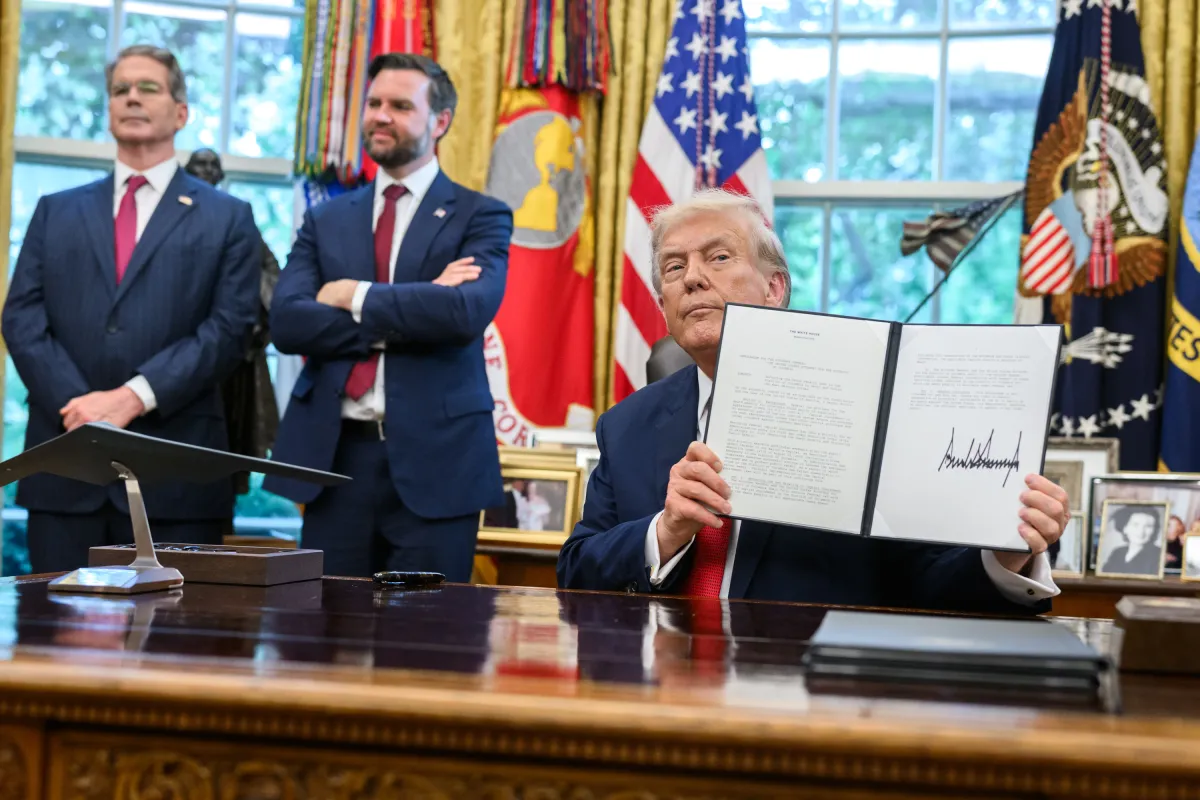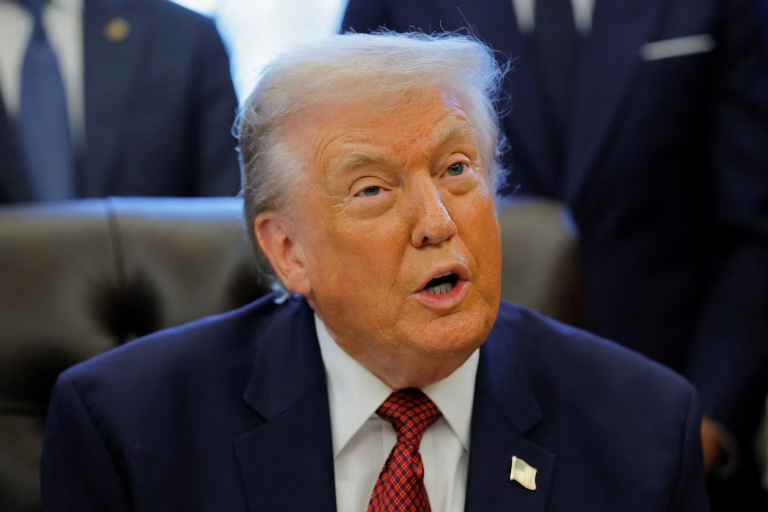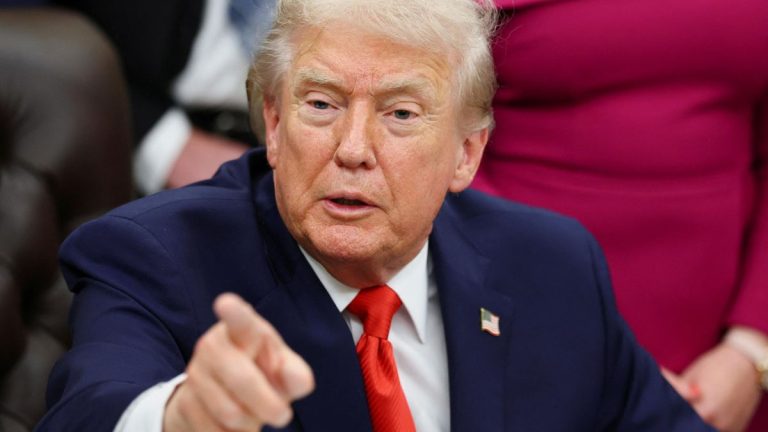Donald Trump, the 79-year-old Republican who previously served as the 45th President of the United States from 2017 to 2021 and returned to the White House earlier this year as the 47th President, may have multiple avenues to pursue what some are calling an “unconstitutional” third term in office.
The prospect of Trump seeking another term, despite the widely held belief that U.S. presidents are limited to two elected terms under the 22nd Amendment, has sparked intense discussion among legal experts, political analysts, and supporters alike. Steve Bannon, Trump’s former Chief Strategist during his initial presidency, recently told The Economist that Trump is “going to be president in ’28” and urged the public to “get accommodated with that.”
Trump’s Legal History and Current Standing
Trump’s recent history adds to the controversy surrounding the notion of a third term. In May 2024, he was found guilty of falsifying business records related to “hush-money” payments made ahead of the 2016 election. This conviction made him the first American president—sitting or former—to be convicted of a felony. Nevertheless, in January 2025, he was sentenced to an “unconditional discharge,” which meant he avoided prison, probation, or fines.
Even with this legal baggage, Trump has shown no outright aversion to the idea of continuing his political career. During an interview with NBC News in March 2025, he suggested there could be ways for him to extend his influence beyond a typical two-term presidency. “A lot of people want me to do it,” he said, adding that while it is “far too early to think about it,” he is not ruling out potential strategies. “I like working. I’m not joking,” he emphasized.
The 22nd Amendment: Limitations and Loopholes
The U.S. Constitution’s 22nd Amendment, ratified in 1951, restricts any person from being “elected to the office of President more than twice.” In straightforward terms, it prevents a president from being elected to more than two terms. However, constitutional experts have pointed out a subtle but significant loophole: the amendment limits elections, not service.
This distinction opens up multiple avenues through which Trump—or any former two-term president—could theoretically serve again without technically violating the Constitution. While such paths are unprecedented, legal analysts note that the Constitution allows for flexibility in how someone may assume the presidency beyond the standard election process.
The House of Representatives: A Constitutional Path
One potential route to a third term is through the House of Representatives, as outlined in the 12th and 20th Amendments. The 12th Amendment gives the House the authority to “choose” the president if no candidate secures a majority of the Electoral College votes. In such a scenario, each state delegation casts a single vote, effectively allowing the House to elect a president even if that individual has already served two elected terms.
The 20th Amendment further clarifies what happens if no president is chosen in time or if the selected president cannot assume office. In that case, the vice president-elect temporarily becomes president until the situation is resolved. While this pathway is highly unlikely in practice, it remains a constitutionally recognized method for ascending to the presidency without a direct election.
The Vice President and the Line of Succession
Another legal mechanism involves the presidential line of succession, which is codified in the 25th Amendment. If a sitting president dies, resigns, or is removed from office, the vice president automatically assumes the presidency. While this is generally intended for unforeseen emergencies, theoretically, it could provide a route for Trump to serve again if political circumstances aligned.
In theory, if a cooperative vice president were elected and subsequently stepped aside, Trump could return to the office mid-term. While politically complicated and fraught with challenges, legal scholars acknowledge that the Constitution does not explicitly prohibit such maneuvers.
Trump’s Supporters and Political Strategy
Supporters of Trump, including influential figures such as Steve Bannon, are confident that pathways exist for him to secure a third term. Bannon told The Economist, “There’s many different alternatives. At the appropriate time, we’ll lay out what the plan is, but there’s a plan.”
This type of confidence among Trump loyalists underscores a larger strategic approach: even if a conventional campaign route is blocked, there are political and constitutional maneuvers that could make a return feasible. Whether these strategies would gain traction among lawmakers, courts, or voters is an open question, but it reflects Trump’s continued influence in Republican circles and the wider political landscape.
Political Implications and Controversy
The idea of a third term for Trump is, by definition, controversial. Critics argue that it undermines the spirit of the 22nd Amendment and sets a dangerous precedent for future presidencies. Supporters, on the other hand, frame it as a creative and legal exercise of constitutional rights, suggesting that there is nothing explicitly illegal about these potential pathways.
Political opponents, including Vice President Kamala Harris, have indicated that they may consider another run for the presidency despite losing to Trump in the 2024 election. Harris has not elaborated on any strategy that might counteract these constitutional loopholes, but her potential candidacy adds another layer of complexity to the 2028 race.
Public Perception and Media Coverage
Public reaction to the idea of a third term has been mixed. Some voters see it as an absurd notion, a challenge to American democratic norms, while others view it as a logical extension of Trump’s political brand and enduring popularity. Media outlets have widely covered both sides, often framing the discussion around constitutional interpretation, political strategy, and Trump’s personal ambitions.
Legal analysts frequently caution that while loopholes exist, exploiting them would likely face intense judicial scrutiny and public debate. Any attempt by Trump to serve beyond two elected terms would almost certainly provoke lawsuits, Congressional hearings, and nationwide political discourse. The debates would likely hinge on the precise language of the 22nd, 12th, 20th, and 25th Amendments, as well as the broader principles of American constitutional law.
Historical Context
No president in American history has successfully pursued a third term in the modern era, and the 22nd Amendment was explicitly ratified to prevent such occurrences following Franklin D. Roosevelt’s unprecedented four terms. Roosevelt’s presidency, which spanned from 1933 to 1945, prompted widespread concern about the concentration of executive power and led directly to the two-term limit codified in the Constitution.
Trump’s consideration of alternative avenues to a third term, therefore, carries historical significance. It tests the boundaries of constitutional law, the resilience of democratic norms, and the limits of political strategy in the United States.
Legal and Political Challenges
While theoretical pathways exist, the practical challenges of securing a third term remain formidable. Beyond legal interpretations, Trump would need substantial support within the Republican Party, influential allies in Congress, and a political environment conducive to such maneuvers. Even with a strategy laid out, the unpredictability of American politics—voter sentiment, judicial rulings, and media scrutiny—could derail any effort.
Nonetheless, Trump’s history of defying expectations, combined with his ability to mobilize a large base of supporters, keeps the possibility alive. For his loyalists, this represents not just a legal argument, but a continuation of a political movement that has reshaped the Republican Party and American politics more broadly.
Conclusion
Donald Trump’s potential pursuit of a third term is one of the most provocative political questions facing the United States today. Through constitutional loopholes, the support of allies, and strategic planning, Trump and his team may find ways to extend his presidency beyond the limits traditionally imposed by the 22nd Amendment. While unprecedented and highly controversial, the pathways exist, at least theoretically, and Trump’s supporters are already preparing for the possibility.
Whether or not these strategies would succeed is uncertain, but the discussion highlights the ongoing tension between constitutional law, political ambition, and the evolving nature of American democracy. In the coming years, the nation may witness one of the most extraordinary constitutional debates in modern history, as a former president seeks to redefine the limits of executive power in the United States.

Emily Johnson is a critically acclaimed essayist and novelist known for her thought-provoking works centered on feminism, women’s rights, and modern relationships. Born and raised in Portland, Oregon, Emily grew up with a deep love of books, often spending her afternoons at her local library. She went on to study literature and gender studies at UCLA, where she became deeply involved in activism and began publishing essays in campus journals. Her debut essay collection, Voices Unbound, struck a chord with readers nationwide for its fearless exploration of gender dynamics, identity, and the challenges faced by women in contemporary society. Emily later transitioned into fiction, writing novels that balance compelling storytelling with social commentary. Her protagonists are often strong, multidimensional women navigating love, ambition, and the struggles of everyday life, making her a favorite among readers who crave authentic, relatable narratives. Critics praise her ability to merge personal intimacy with universal themes. Off the page, Emily is an advocate for women in publishing, leading workshops that encourage young female writers to embrace their voices. She lives in Seattle with her partner and two rescue cats, where she continues to write, teach, and inspire a new generation of storytellers.









